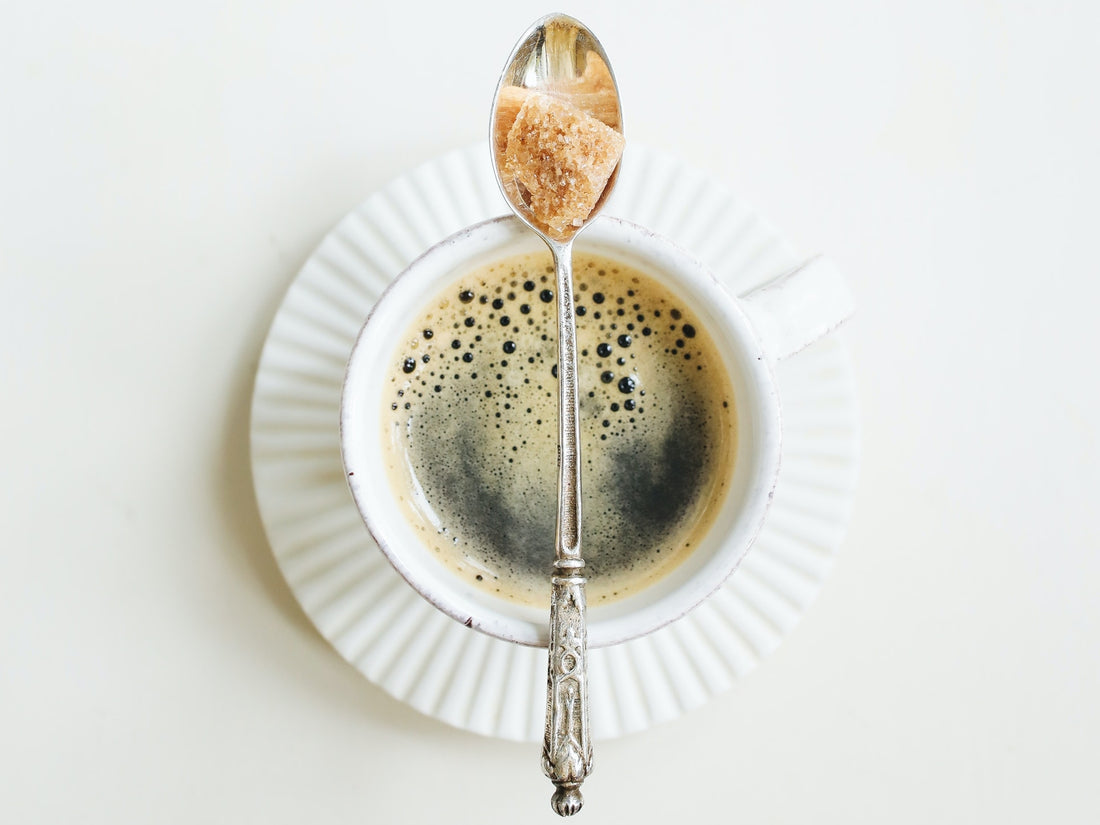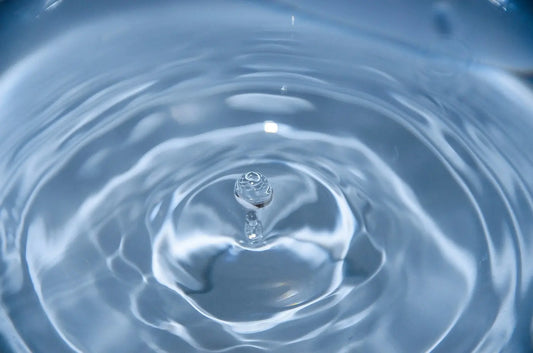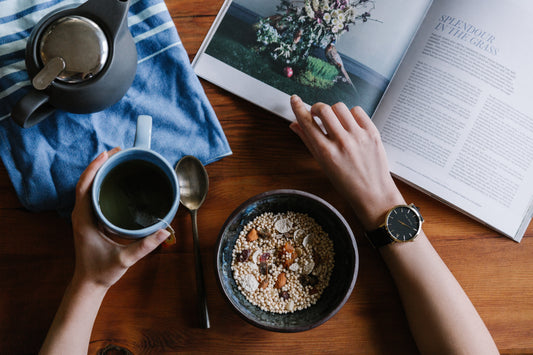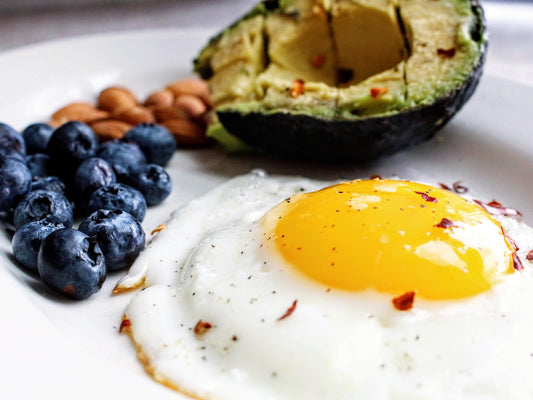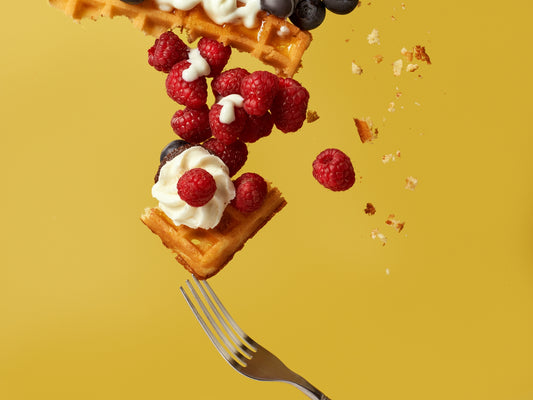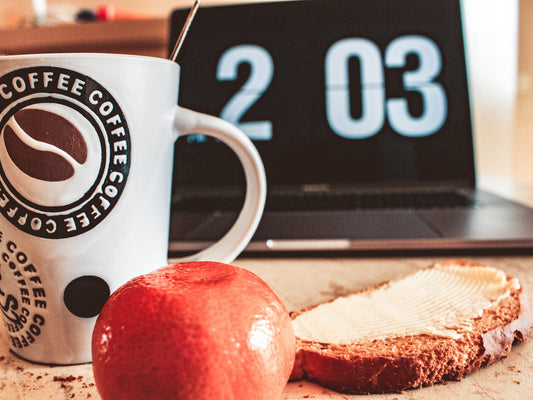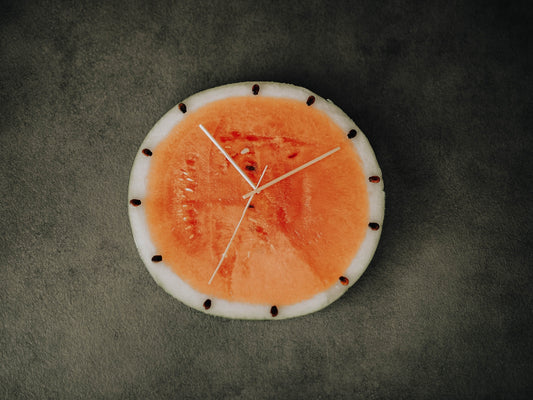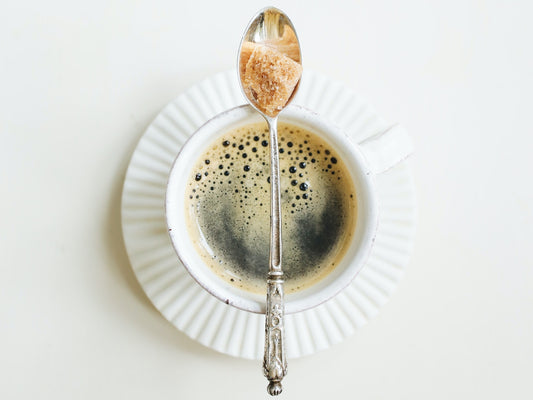Are you worried about whether stevia is bad for teeth? Before delving into this discussion, pat yourself on the back for caring about your oral health, unlike many others. Trust us! Your teeth will thank you for it.
Here we will explore the effects of alternative sugar, a.k.a stevia, on your oral health backed by facts so that you remain informed and live a healthy life.
Let’s get started.
Stevia — A sugar alternative
What is stevia?
Stevia is a popular sugar alternative that is at least 300 times sweeter than your regular sugar. It’s extracted from “Stevia Rebaudiana,” which grows mostly in Paraguay and Brazil. Stevia has been used for centuries and only recently got popular in American culture.
Despite the intense sweetness, it is calorie-free and has been declared safe for everyday use by the European Food Safety Authority (EFSA)[1].
Stevia might even be more beneficial for people suffering from diabetes and obesity [2]. This perennial shrub has many benefits and is even used in medicines. So, if you are considering replacing sugar with stevia, then, by all means, go for it.
In case you were wondering why stevia hasn’t replaced mainstream sugar consumption: It’s expensive to harvest and has an aftertaste, especially in baked goods.
However, studies are done to expand its production to a larger scale [3]. You can find it in granular, powdered, and tablet form. Many people grow it in their homes to get the purest and healthiest form of stevia [4].
Is stevia harmful to your teeth?

No. It’s perfectly safe to eat and doesn’t harm your teeth. Stevia is all-natural, and it doesn’t have “fermentable carbohydrate” - a compound that metabolizes mouth bacteria that harms the teeth. Also, stevia doesn’t produce lactic acid, which can be detrimental to oral health [5].
On the contrary, table sugar has many adverse effects on dental health. Sucrose (sugar) is a fermentable carb that can convert into organic acid, harming the teeth enamel. That’s why kids who consume a large number of sweets often have rotten teeth.
Thankfully, stevia plants don’t have such content, and it’s free from carbs and calories. Some major benefits of stevia consumption are:
- It’s not harmful to teeth and safe for oral health
- Minimum amount of calories and carbohydrates
- 300 times sweeter than household sugar
- Beneficial for diabetics
- Helps in weight loss
Even though stevia has many benefits, this doesn’t mean that all stevia products available in the market are genuine. These days companies are using fillers to increase the amount of stevia, and many stevia products have other sweeteners mixed with them to improve the taste. Make sure to read the ingredients list on the packaging before buying it.
Many researchers have found that oral health isn’t the only benefit of stevia usage. It’s also beneficial for diabetes, regulation of blood sugar, and has anti-cancer properties [6].
As a general rule, it is always better to consult your doctor before consuming any product.
Does stevia cause tooth decay like sugar?
No, it doesn’t cause tooth decay. Stevia actually reduces plaque production in the teeth. In 2017, scientists researched the effects of stevia and sugar extract on the teeth of volunteers. They found out that the stevia extract produced a drastically lower amount of plaque pH value than sugar extract did and concluded that stevia supports oral health [7].
Since it’s non-acidogenic (it doesn’t produce acid), stevia doesn’t harm the tooth enamel. However, the same can not be said for sucrose and fructose, which are both declared cariogenic (promotes tooth decay) by the National Institutes of Health (NIH) [8]. Stevia is considered safe for regular use and approved by the FDA.
Toothache after eating stevia — possible reasons?
In general, stevia doesn’t cause toothache. But here are some reasons that might have caused you pain.
1. Stevia is not pure
There is a chance that the stevia you are using is mixed with other sweeteners like xylitol and erythritol to enhance its aftertaste [9, 10]. Some companies add fillers and maltodextrin to add bulk for higher profits. Sometimes manufacturers even mix it with sugar.
So, even though stevia in its purest form is harmless, a mixed stevia product may still harm you. Make sure to read the label before buying stevia products.
2. Dosage
Even though stevia is less harmful than sugar, it should still be used in moderation. Excessive use can cause toothache and other health problems.
3. Underlying problem
Sometimes there is already plaque formation due to poor oral hygiene. Stevia may not be the real culprit here. It’s best to consult your dentist and investigate the underlying problem.
Does stevia cause gum disease?
No, stevia doesn’t cause any gum disease. Since it doesn’t have the same chemical makeup as sugar, it is perfectly safe for gums.
Satisfy your sweet cravings without having to worry about dental health.
Stevia consumption — when to stop eating
Stevia is generally considered harmless in its pure form, but it can negatively affect your body if taken in excess. Moreover, stevia may not be the best sugar substitute for people with certain medical conditions or allergies.
According to a study, the JFCEA has established a safe daily intake of steviol glycosides as 4 mg/kg body weight per day [11].
Potential Side Effects of Stevia
The US Food and Drug Administration (FDA) has only approved stevia in its refined and processed form. Stevia in its raw form, such as leaves, may have a slight tendency to affect your kidneys, cardiovascular system, and reproductive system negatively. FDA advises steering clear of raw stevia as they don't have enough information to prove its safety [12].
Researchers initially thought that stevia could potentially harm the kidneys in the long term because of its diuretic nature, but recent research has proven that stevia is beneficial for patients with chronic kidney disorders [13].
In that same vein, studies have shown that taking stevia promotes cardiovascular health and reduces hypertension [14].
Other studies have determined how it can improve gastrointestinal disorders such as diarrhea and irritable bowel syndrome [15].

There is still a need to research the effect of stevia in people with different disorders to truly consider it a viable solution for obesity, diabetes, and metabolic syndromes.
Although stevia and calorie-free sweeteners are widely used to reduce sugar intake and maintain a healthy number of calories in the diet, some studies state otherwise. In this research [16], people who took stevia instead of sugar felt the need to compensate for the sugar intake by eating bigger and heavier meals.
Some researchers are concerned that eating such sweeteners without the reward of calories may affect the response to sugar consumption, energy intake, and gut microbiome [17]. Many studies are being carried out to understand non-calorie sweeteners better, but we can't blindly assume that they are 100% safe for us.
Who should not have stevia?
Stevia can lower blood pressure and sugar levels. If you are already a patient with low BP and sugar, it's better to discuss this with a doctor before regularly having stevia [18]. If you are a patient of any of the following disorders, it is advised to take stevia in a moderate amount and keep your symptoms under strict supervision.
- Blood pressure conditions
- Low sugar Level
- Kidney complications
- Cardiovascular problems
- Hormonal disturbance
- Cancer
Stevia vs. Monk Fruit
Similar to Stevia, Monk Fruit is another widely used natural sweetener that contains little to zero calories. Although both are derived from natural sources, stevia products are usually much more refined than monk fruit.
Unlike other artificial sweeteners, monk fruit doesn’t leave a strong and bitter aftertaste, although some might still find it unpleasant. In any case, it’s less pronounced than the aftertaste of stevia.
In the end, it all depends on what your taste buds like!

To date, no research has proven that monk fruit causes any adverse effects, even if taken in excess. Our No Added Sugar line contains only natural monk fruit extract that will replenish your body electrolytes and perk you up instantly. It’s a perfect formula if you’re following a low-sugar diet and still want some sweetness in your life!
Other non-calorie sweeteners to replace table sugar
There are a handful of options you can opt for other than stevia and monk fruit to replace your sugar intake, which the FDA also approves as safe to consume. A few are mentioned below:
1. Allulose
Allulose is extracted from figs and raisins. It is less sweet than table sugar and has 90% fewer calories than sucrose, making it almost calorie-free.
2. Saccharin
Saccharin has been used as an artificial sweetener for over a century. It is 300-400 times sweeter than regular sugar and is sometimes used with other sweeteners, like Aspartame.
Sucralose can fulfill your sugar cravings with just a few grams because it is about 600 times sweeter than table sugar. It is a highly stable sweetener and can be found in foods such as frozen desserts and baked goods.
4. Aspartame
Aspartame is 200 times sweeter than sugar and is used in beverages, desserts, and snacks. This low-calorie sweetener is usually used with other types of sweeteners and food additives to enhance the flavor.
5. Neotame
Neotame is 7000-13000 times sweeter than regular sugar and still tastes great! You can include it in your diet without worrying about it tasting bitter like other high-intensity sweeteners.
Conclusion
There's a growing number of artificial and non-calorie sweeteners available on the market, but researchers are still skeptical about their health implications. Stevia is not bad for your teeth! You can definitely include it in your diet but keep the intake in moderation to avoid unnecessary complications.
We advise you to consult a doctor if you have any underlying health conditions such as diabetes, cardiovascular disease, kidney disorders, hormonal disturbances, or cancer.
References










